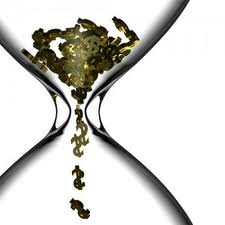Can't afford to pay the down payment AND closing costs? Now is not the time to put the brakes on the home search! If you are pre-approved and on the home search, put the brakes on by deciding to save for closings.
Can't afford to pay the down payment AND closing costs? Now is not the time to put the brakes on the home search! If you are pre-approved and on the home search, put the brakes on by deciding to save for closings.
Banks and sellers give seller concessions, to mitigate cash to close, you just have to negotiate for them.
How long to save for closing costs?
If saving for closing costs will only take you 30 days, then go for it. Otherwise, if the act of putting money away and diligently saving every month is going to take a course of several months or longer, reconsider as rates are significantly low.
Banks and sellers are almost giving money away in the form of closing costs. These money are typically upwards of 3% of the purchase price.
On a $250,000 house that figure is $7,500.
If you have zero down payment or even up to 3.5% as a down payment, you are all set as the seller could pay the closing costs and you would be off the hook for needing more cash to close escrow on your home purchase.
This is why saving for closing costs doesn't really make sense, because banks and home seller give concessions for closing costs as indicated as a percentage of the purchase price so as long as the house is priced right.
If the mortgage loan program you are taking out to purchase the property for example is a USDA Mortgage. If you can get the 3% from the seller for closing costs, you will need no money down because the loan requires no down payment.
Closing costs consist of all the following items:
- lender fees
- origination fees
- appraisal fees
- escrow fees
- notary fees
- title insurance fees
- deed fees
- recording fees
- prepaid interest
- prepaid taxes
- first installment of property taxes (depending on what month of the year the transaction is closing in)
These fees typically account for 3% of the purchase price.
However, closing costs can change because they are based upon the purchase price, subsequently the mortgage loan financing, and prepaid items like daily interest and property taxes.
How to estimating closing costs:
1. Properties up to $150,000 need 4% for closing costs
2. Properties over $150,000-$250,000 need 3% for closing costs
3. Properties over $250,000-$350,000 also need 3% for closing costs, on occaison, you can get away with 2.5% back for closing costs on properties closer to $350,000.
4. For properties over $350,000 you can start to use 2.5% as a general rule of thumb to calculate what closing costs will be.
*Mortgage Tip: "The higher the purchase price the lower the seller credit needed for closing costs."
For example if you are purchasing a $500,000 home it's unlikely you are going to get a very big credit for closing costs, though not uncommon, just more challening in the upper end of the market. Focus on saving for a down payment, not saving for closing costs.
Consider the mortgage loan program you are taking out because each mortgage loan program allows for seller concessions of varying closing costs. For example an FHA Insured Loan, allows for a seller concession of 6% for primary residence, while a second home conventional loan allows for seller concession of 3%.
You will want to obtain an itemtimized cost breakdown from your lender, on purchase price scenarios, factoring in the figures,so you can arm yourself with information necessary to successfully negotiate for seller paid closing costs.




